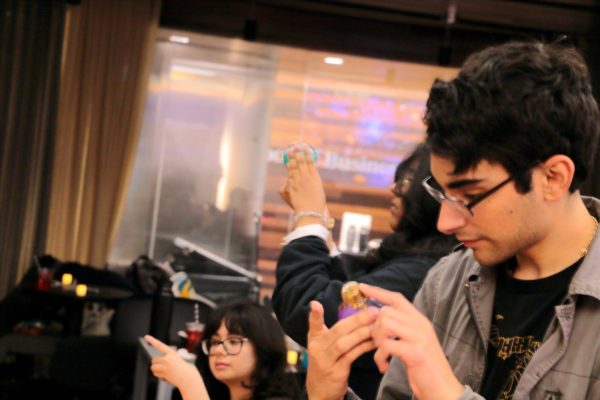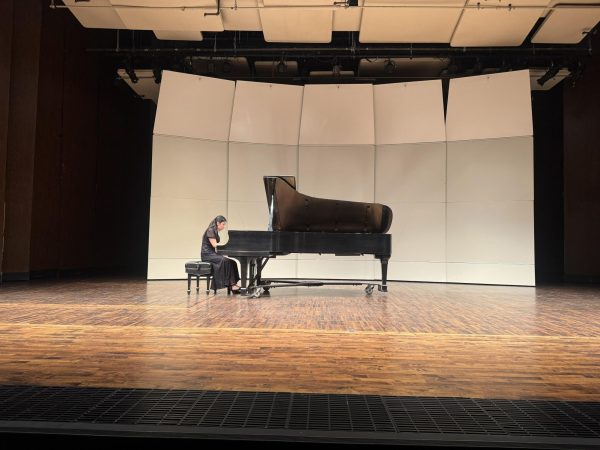What does it mean to be from the Americas? Colloquium seeks answer
A colloquium on “Comparative Americas” will study the relationships among countries and cultures in the Western Hemisphere to shed light on what it means to be a part of the new world.
The event will take place Wednesday, March 22 from 9:20 a.m. to 4 p.m. in Lake Superior A of the Oakland Center.
It will be co-sponsored by the College of Arts and Sciences, the Department of English and the American Studies Concentration. Discussion will focus on America’s shifting borders and changing identity throughout history, as well as what it means to be American.
“The idea behind the theme ‘Comparative Americas,’ we were trying to sort of make a connection with the College of Arts and Sciences’ theme this year, which is ‘Unity in Diversity,’ which is how we end up talking about America in the plural,” said Joanne Freed, assistant professor of English.
The scholarly colloquium will also delve into transnational American studies, or how America relates to the world beyond its borders and how this idea relates to aesthetics in the country.
“Often times, those two research specialties don’t talk to each other very much, but our colloquium is an effort to think about how some of these questions about aesthetics relate to questions of transnational cultural relations across the Americas,” said Timothy Donahue, assistant professor of English.
The colloquium will include four sessions scheduled to match class times. Attendees are welcome to drop in and out as their schedules allow.
The first and the last sessions are set to consist of equal parts presentation and conversation.
In the first session from 9:20-10:20 a.m., professors Andrea Knutson of English, Cecilia Saenz-Roby of modern languages and literatures, Elizabeth Shesko of history and Alex Zamalin of political science will speak.
“The first round table will be about politics across the Americas and what are some of the hierarchies or discourses or kinds of relationships that link the U.S. together with the rest of the Americas,” Donahue said.
In the last session, from 3:05-4 p.m., professors Christopher Apap and Alison Powell of English, as well as Joyce Havstad of philosophy will present on the artistic and literary styles and structures that allow Americans to perceive the relationship between them and the rest of the hemisphere.
The two middle sessions will be in formal conference style.
The session from 10:40 a.m.-12:10 p.m. is titled “Comparative Relations: Feeling, Kinship, and Sovereignty.” It will include three presentations discussing ideals within 19th-century culture:
- “Parataxis, Comparison, and Sovereignty in the North American West” by Donahue;
- “Abolition, Public Feeling, and the Central American Migrant Body” by Kirsten Silva Gruesz from the University of California Santa Cruz; and
- “Clannishness: Jewett, Zitkala-Sa and Immodern Kinship” by Nancy Bentley from the University of Pennsylvania.
The session from 1:20-2:50 p.m. is titled “Narrative Forms and Transnational Spaces.” This session will also include three presentations discussing the central theme of literature from the 20th and 21st centuries:
- “Romance, Race, and Narrative Pleasure in Adichie’s ‘Americanah’” by Freed;
- “Hemispheric Narrative TransMediations” by Frederick L. Aldama from Ohio State University; and
- “Not a Novel: Reading ‘The House on Mango Street’ as a Prose Poem Cycle” by Paula M. L. Moya from Stanford University.
“One of the things that makes this event really unique, we have a terrific bunch of invited scholars from across the nation,” Freed said.
A Q-and-A session will follow each session.
“Going to an event like this, you are seeing and potentially participating in the making of new knowledge,” Freed said. “The Q-and-A is a terrific opportunity for you to actually be a part of that.”
According to Donahue and Freed, the colloquium will also be a chance for students to experience the research portion of their professors’ careers.
Registration is not required for this free event, which is open to the public.




